The stigmatisation of migrants even exists in the British press, where the most common word used to describe them is “illegal”. This is why Afro-Brazilian journalist Juliana da Penha, who has lived under the shadow of such rhetoric in both her personal and professional life, decided to create a new media space, one where different kinds of stories could be told. So, she founded Migrant Women Press. The Prisma Series “Journalists and immigrants in the UK”.
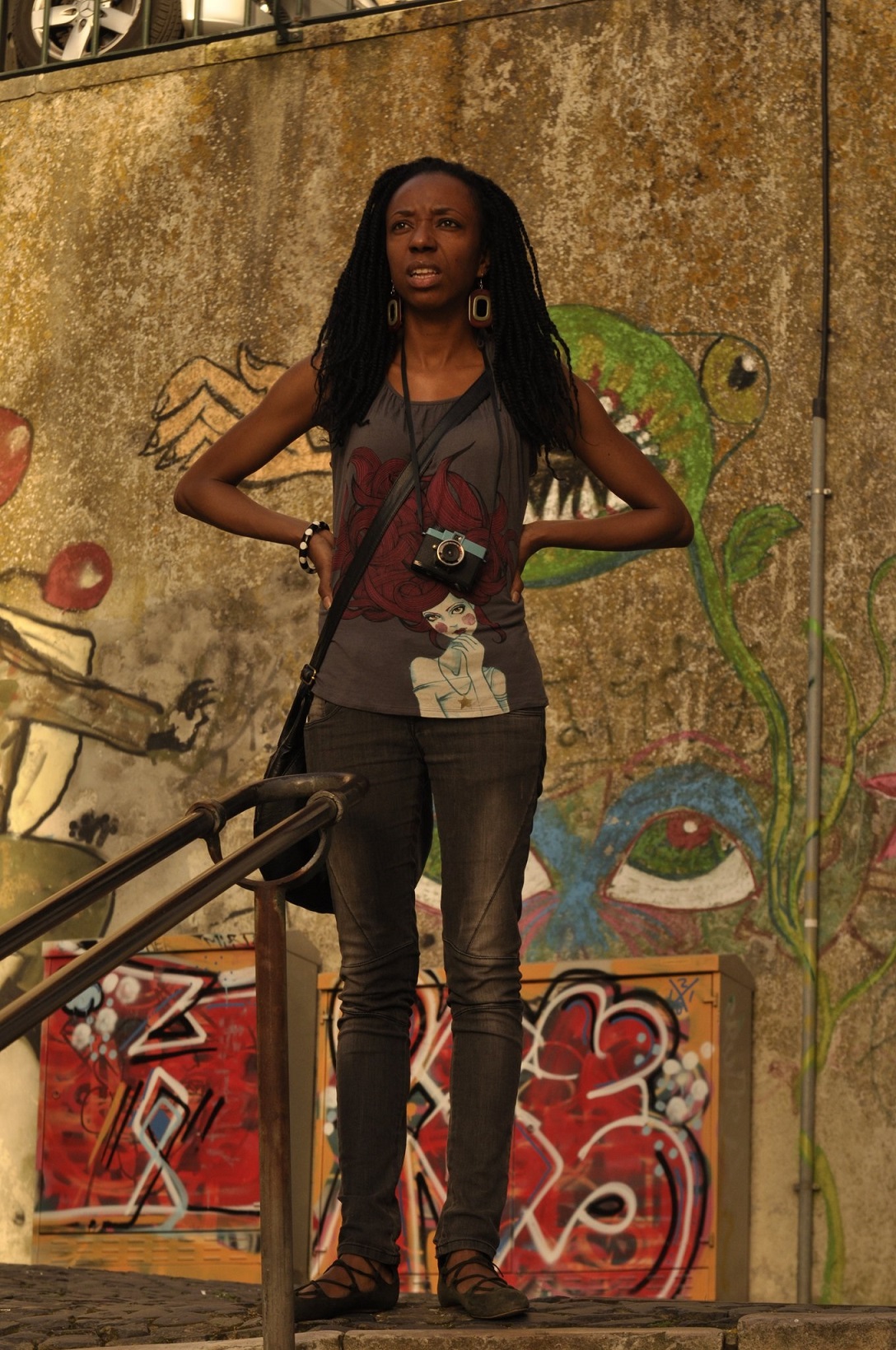
Mizy Judah Clifton
To her mother’s dismay, as a child Juliana would satisfy her burgeoning curiosity about the world by skipping school to take buses in and around the various neighbourhoods of her native São Paulo (Brazil). It was enough simply to look.
For all those politicians’ boasting about Brazil being some post-racial haven of cosmopolitanism, São Paulo tells a rather different tale of two (or three, or four, or five) cities – and although much of its poverty continues to be concentrated in peripheral districts, photographer Tuca Viera’s famous 2004 image of the Paraisopolis favela sitting cheek-by-jowl to the gated complex of Morumbi remains a powerful testament to the gap between rich and poor.
With seeing things that she was not supposed to see came the question of ‘why’.
That question – simple, bold, and not always so easily answered – planted the first seed of Juliana’s interest in journalism. Her first job was with a Brazilian hip-hop magazine, where she found her voice writing about the connections between music and political struggle. Yet Juliana’s awareness of the structural injustices within Brazilian society exists alongside a deep appreciation for how it does community. When she moved to Scotland ten years ago, she was struck not only by the cold but also how different British ways of socializing (or not) are.
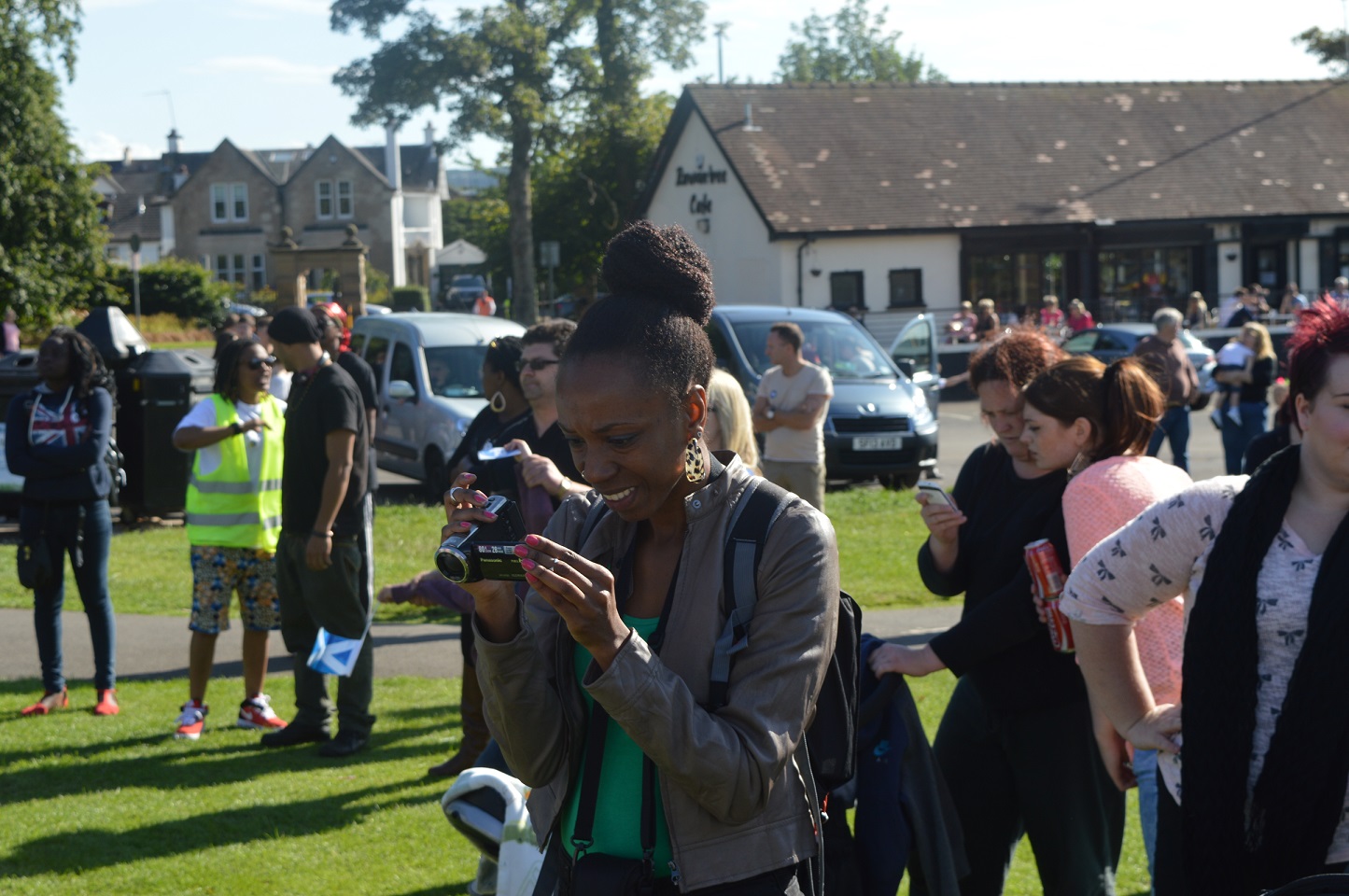
“We have a completely different way of interacting in Brazil. We love to be with people. We are always together. If you want to see friends [in Brazil], you just call them and go to their house. Here, you need to organize things – it’s really unlikely that you’ll go and knock on someone’s house without notice. In Brazil these things are more spontaneous, there is no need to organize too much to stay together. This is something I really miss,” she says.
Juliana’s husband was already living in Glasgow, so getting settled was easier than it would have been without his insider knowledge. But in other ways, she still had to start again from scratch.
In the UK, a language barrier and lack of familiarity with British audiences meant she struggled to enter the media industry at first. Numerous setbacks and countless rejected pitches – a familiar experience for many journalists, particularly those without the privilege of connections – followed. But Juliana never gave up on her dream.
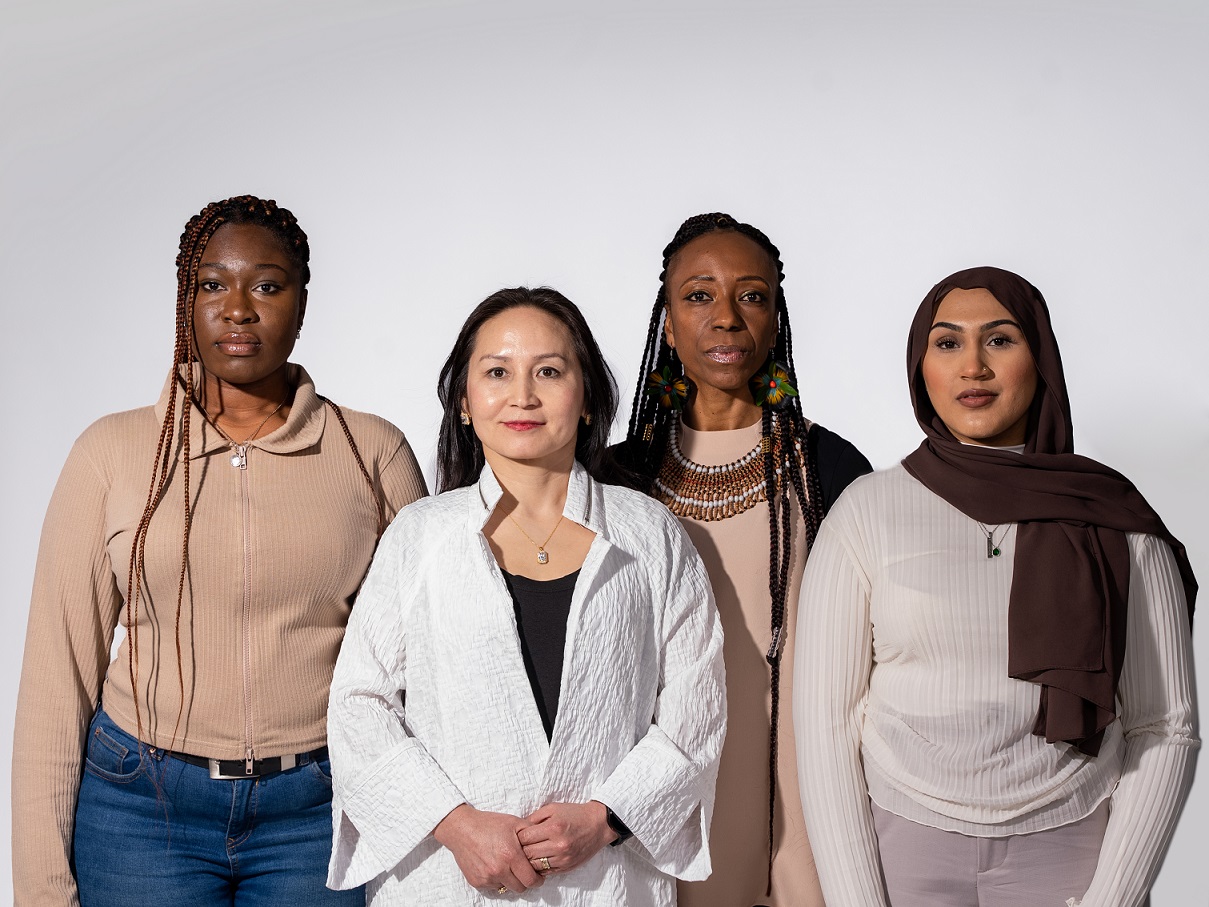
“There was always something [inside me] saying that this was something I always did and was something I should try, so I always had it in my mind – even when I was doing different things. It never left completely. This little light inside of me was there,” she explains.
Ironically, being forced to explore new avenues ultimately exposed Juliana to precisely the experiences that would go on to form the basis of her journalistic interests. It was working for a charity in Italy supporting migrant women in employment that first helped her to link her own challenges with broader social issues.
Highly qualified immigrants often struggle to prove the weight of their credentials in new countries, finding themselves restricted to the poorly-paid, lower-skilled jobs that British workers often refuse to touch given the pay and conditions on offer.
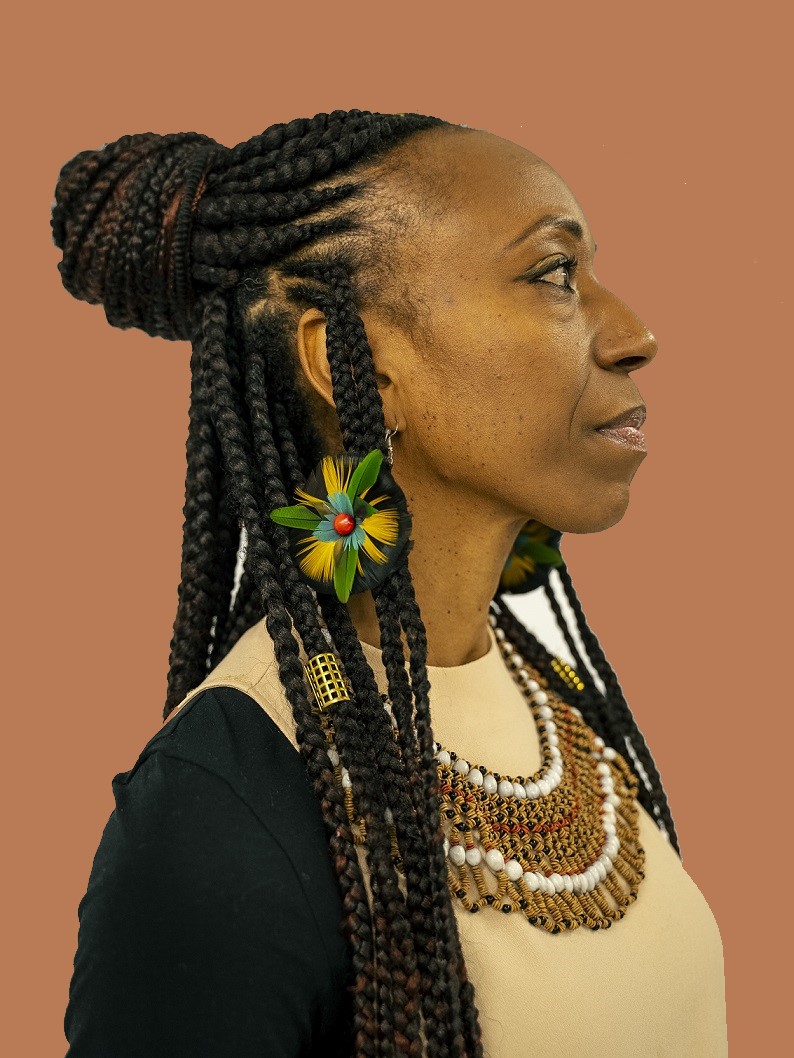
“I started to realize this was connected to what I was facing. You started to lower [your] expectations and not believe you could do better. I started to be interested in sharing these women’s stories – and even if it didn’t go far, I felt I needed to write them,” she says.
But despite migration being high up on the news agenda, the existing media offering provided little in the way of space for such writing. The Migration Observatory’s analysis of more than 40 million words used by British national newspapers to describe migration between 2010 and 2012 found that the most commonly used descriptor was “illegal”.
Though there is no more recent data available, it is clear that media coverage of migration has been guilty of simply echoing politicians’ rhetoric – which frames migrants as criminals until proven otherwise.
And if one purpose of journalism is to tell unexpected and diverse stories, Juliana views the collapsing of millions of diverse experiences into a single narrative as an industry-wide failing. “We as journalists should be deconstructing this [tendency] and giving different perspectives rather than reinforcing just one,” she argues.
So, Juliana decided to carve out her own space – by founding Migrant Women Press in 2020.
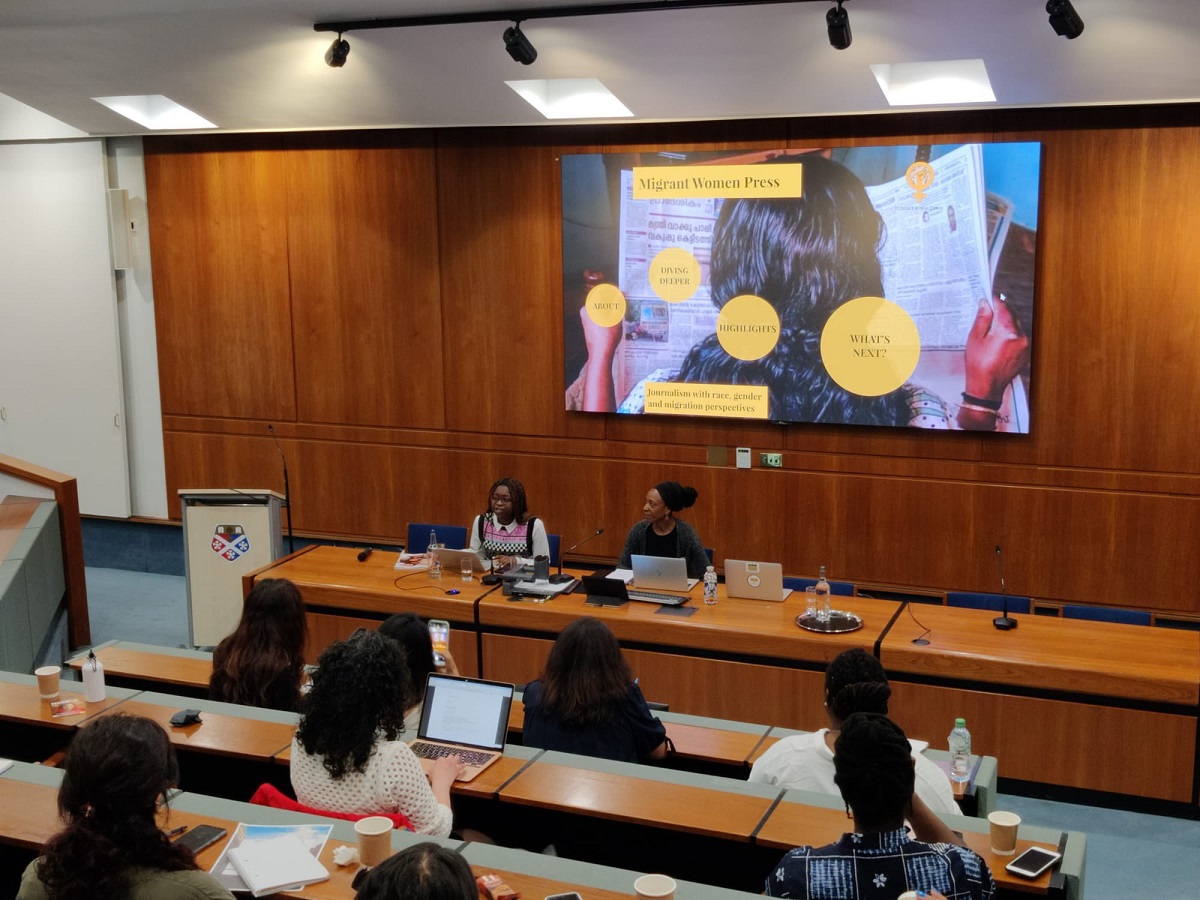
Produced exclusively by migrant women, Migrant Women Press’s mission statement is to amplify migrant women’s long-neglected voices by investigating how the intersections of race, gender, class, nationality and disability weigh on their experiences.
Juliana is clear-eyed about the challenges facing independent media outlets, which often run on limited resources and rely on the good-will of volunteers.
However, insofar as such platforms are free from vested interests and the whims of shareholders, she also believes it is precisely – and perhaps only – these contexts that have the scope to produce this kind of journalism.
“I don’t see us doing it another way,” she says. “I don’t see that we would have space in the mainstream to write and publish the articles we have”.
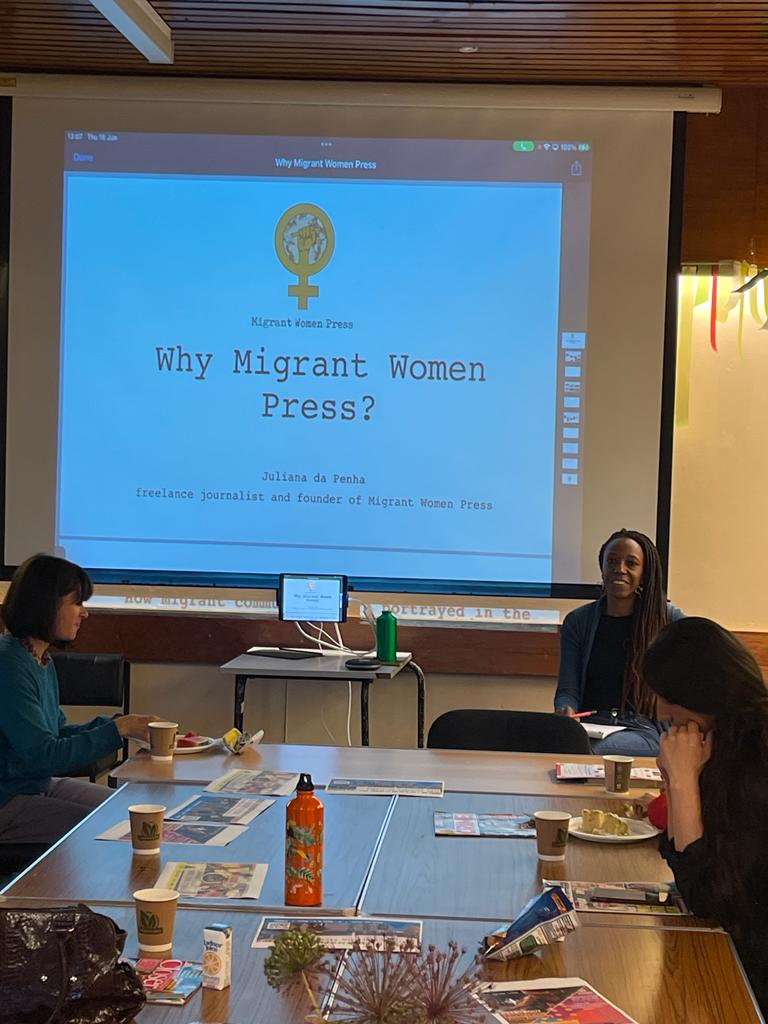
Just as Juliana readily admits struggling initially to find a suitable outlet for her journalism, the women who write for Migrant Women Press also tell her they’ve been unable to place their work elsewhere.
She was bowled over by the level of interest when she began the project four years ago.
“It made me realize that it wasn’t just my idea. But at the same time, it needs to be done in a sustainable way because there are many independent journalistic projects that started without this sustainability and disappeared,” she says.
(Photos provided by the interviewee and authorized for publication)












.jpg)












